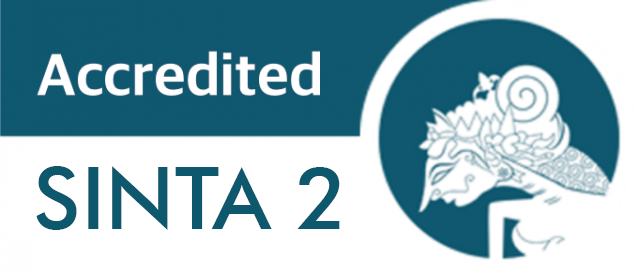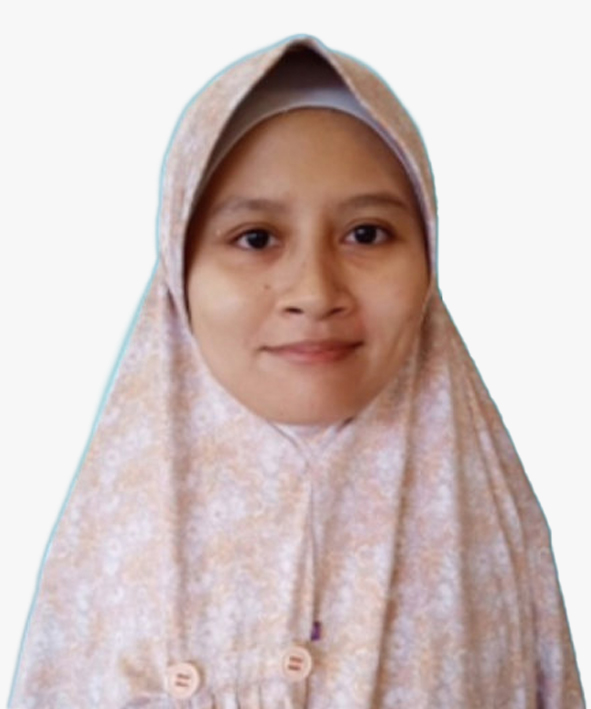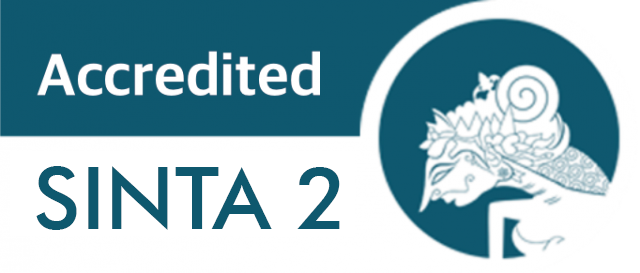Obsessive Compulsive Disorder (OCD) During the COVID-19 Pandemic
Downloads
Introduction: The COVID-19 pandemic, present in Indonesia for 17 months, has significantly impacted mental health, especially in individuals with obsessive-compulsive disorder (OCD). Studies in Europe reported a 17.9% to 60.3% increase in OCD symptom severity. Notably, no research in Indonesia has explored the pandemic's effects on OCD patients. Lockdown measures in Indonesia may exacerbate symptoms, but some OCD patients benefit, finding relief from societal stigmatization and the opportunity to advise others on infection prevention. This review aims to examine the impact of the COVID-19 pandemic on OCD patients in Indonesia and discuss potential management strategies. Methods: We conducted a comprehensive literature search, identifying studies, articles, and reports relevant to the effects of the COVID-19 pandemic on OCD patients in Indonesia. These sources were critically evaluated to provide a comprehensive overview. Results: This review reveals that the pandemic poses unique challenges to OCD patients in Indonesia. Lockdown measures may worsen symptoms, although some patients find relief from societal stigmatization. OCD patients can play a valuable role in advising others on infection prevention. Telemedicine, especially CBT, and medication adherence tools are crucial for effective management. Conclusion: The COVID-19 pandemic affects OCD patients in Indonesia in various ways. It is essential to recognize how lockdown measures impact symptom severity and the opportunities for patients to contribute positively to society. Telemedicine and medication adherence tools are valuable for managing OCD during the pandemic. Addressing the needs of OCD patients and implementing effective strategies for their care during COVID-19 is essential in Indonesia.
Portal Informasi Indonesia. "Kasus Covid-19 Pertama, Masyarakat Jangan Panik”, Indonesia.go.id. 2021. Available : https://indonesia.go.id/narasi/indonesia-dalam-angka/ekonomi/kasus-covid-19-pertama-masyarakat-jangan-panik [Accessed 22 August 2021]
Perhimpunan Dokter Spesialis Kedokteran Jiwa Indonesia (PDSKJI). "Masalah Psikologis di Era Covid-19”, 2021 Available: http://pdskji.org/home [Accessed 22 of August 2021]
L. Jelinek, S. Moritz, F. Miegel and U. Voderholzer, "Obsessive-compulsive disorder during COVID-19: Turning a problem into an opportunity?", Journal of Anxiety Disorders, vol. 77, p. 102329, 2021. Available: 10.1016/j.janxdis.2020.102329 [Accessed 22 August 2021].
Y. Tanir et al., "Exacerbation of obsessive compulsive disorder symptoms in children and adolescents during COVID-19 pandemic", Psychiatry Research, vol. 293, p. 113363, 2020. Available: 10.1016/j.psychres.2020.113363 [Accessed 22 August 2021].
R. Boland, M. L. Verdium, and P. Ruiz, Kaplan & Sadock's Synopsis of Psychiatry, vol. 53, no. 9. 2021.
American Psychiatric Association, Diagnostic and Statistical Manual of Mental Disorders, Fifth Edition (DSM-5), 5th ed. American Psychiatric Association, 2013.
A. M. Ruscio, D. J. Stein, W. T. Chiu, and R. C. Kessler, "The Epidemiology of Obsessive-Compulsive Disorder in the National Comorbidity Survey Replication,” Mol. Psychiatry, vol. 15, no. 1, p. 53, Jan. 2010. Available : doi: 10.1038/MP.2008.94. [Accessed 22 August 2021]
L. Jelinek, A. Göritz, F. Miegel, S. Moritz and L. Kriston, "Predictors of trajectories of obsessive-compulsive symptoms during the COVID-19 pandemic in the general population in Germany", Translational Psychiatry, vol. 11, no. 1, 2021. Available: 10.1038/s41398-021-01419-2 [Accessed 22 August 2021].
Y. Zheng, L. Xiao, Y. Xie, H. Wang and G. Wang, "Prevalence and Characteristics of Obsessive-Compulsive Disorder Among Urban Residents in Wuhan During the Stage of Regular Control of Coronavirus Disease-19 Epidemic", Frontiers in Psychiatry, vol. 11, 2020. Available: 10.3389/fpsyt.2020.594167 [Accessed 22 August 2021].
A. Abba-Aji et al., "COVID-19 Pandemic and Mental Health: Prevalence and Correlates of New-Onset Obsessive-Compulsive Symptoms in a Canadian Province", International Journal of Environmental Research and Public Health, vol. 17, no. 19, p. 6986, 2020. Available: 10.3390/ijerph17196986 [Accessed 20 August 2021].
B. Sadock, V. Sadock and P. Ruiz, Kaplan and Sadock. Sinopsis de PsiquiatriÌa. Philadelphia: Wolters Kluwer, 2015.
A. Nazeer, F. Latif, A. Mondal, M. Azeem and D. Greydanus, "Obsessive-compulsive disorder in children and adolescents: epidemiology, diagnosis and management", Translational Pediatrics, vol. 9, no. 1, pp. S76-S93, 2020. Available: 10.21037/tp.2019.10.02 [Accessed 21 August 2021].
Ahn, D., Shin, H., Kim, M., Lee, S., Kim, H., Myoung, J., Kim, B. and Kim, S., 2020. Current Status of Epidemiology, Diagnosis, Therapeutics, and Vaccines for Novel Coronavirus Disease 2019 (COVID-19). Journal of Microbiology and Biotechnology, [online] 30(3), pp.313-324. Available: https://www.jmb.or.kr/journal/view.html?doi=10.4014/jmb.2003.03011 [Accessed 22 August 2021].
World Health Organization (WHO). "Novel Coronavirus", Who.int, 2021. [Online]. Available: https://www.who.int/indonesia/news/novel-coronavirus. [Accessed 22 August 2021].
Gureje O. Coronavirus Disease 2019 Pandemic in Low- and Middle-Income Countries: The Pivotal Place of Social Psychiatry. World Soc Psychiatry [serial online] 2020;2:94-6. Available from: https://www.worldsocpsychiatry.org/text.asp?2020/2/2/94/292142 [Accessed 20 August 2021].
S. Gobbi et al., "Worsening of Preexisting Psychiatric Conditions During the COVID-19 Pandemic", Frontiers in Psychiatry, vol. 11, 2020. Available: 10.3389/fpsyt.2020.581426 [Accessed 21 August 2021].
C. Wang et al., "The impact of COVID-19 pandemic on physical and mental health of Asians: A study of seven middle-income countries in Asia", PLOS ONE, vol. 16, no. 2, p. e0246824, 2021. Available: 10.1371/journal.pone.0246824 [Accessed 20 August 2021].
F. Ornell, D. Braga, D. Bavaresco, I. Francke, J. Scherer, L. von Diemen and F. Kessler, "Obsessive-compulsive disorder reinforcement during the COVID-19 pandemic", Trends in Psychiatry and Psychotherapy, 2021 [Online]. Available: https://www.scielo.br/j/trends/a/srcmrJDVtgrBD9mFJCwQYVc/?lang=en. [Accessed: 21 August 2021]
World Health Organization. 2021. Corona Virus Disease (COVID-19) Advice For the Public) Available : https://www.who.int/emergencies/diseases/novel-coronavirus-2019/advice-for-public [Accessed: 21 August 2021]
Decree Of The Minister Of Health Of The Republic Of Indonesia. 2020. Protokol Kesehatan Bagi Masyarakat Di Tempat Dan Fasilitas Umum Dalam Rangka Pencegahan Dan Pengendalian Corona Virus Disease 2019 (Covid-19). Available from : http://hukor.kemkes.go.id/uploads/produk_hukum/KMK_No__HK_01_07-MENKES-382-2020_ttg_Protokol_Kesehatan_Bagi_Masyarakat_di_Tempat_dan_Fasilitas_Umum_Dalam_Rangka_Pencegahan_COVID-19.pdf [Accessed: 20 August 2021]
P. Davide, P. Andrea, O. Martina, E. Andrea, D. Davide and A. Mario, "The Impact of the COVID-19 Pandemic on Patients with OCD: Effects of Contamination Symptoms and Remission State Before the Quarantine in A Preliminary Naturalistic Study", Psychiatry Research, vol. 291, 2020. Available: 10.1016/j.psychres.2020.113213 [Accessed 22 August 2021].
J. Nissen, D. Hí¸jgaard and P. Thomsen, "The Immediate Effect of COVID-19 Pandemic on Children and Adolescents with Obsessive Compulsive Disorder", BMC Psychiatry, vol. 20, no. 1, pp. 1-10, 2020. Available: 10.1186/s12888-020-02905-5 [Accessed 22 August 2021].
S. Moritz et al., "Obsessive–Compulsive Disorder is Characterized by a Lack of Adaptive Coping Rather than an Excess of Maladaptive Coping", Cognitive Therapy and Research, vol. 42, no. 5, pp. 650-660, 2018. Available: 10.1007/s10608-018-9902-0 [Accessed 21 August 2021].
G. Doron, M. Kyrios and R. Moulding, "Sensitive domains of self-concept in obsessive–compulsive disorder (OCD): Further evidence for a multidimensional model of OCD", Journal of Anxiety Disorders, vol. 21, no. 3, pp. 433-444, 2007. Available: 10.1016/j.janxdis.2006.05.008 [Accessed 20 August 2021].
A. Jassi et al., "OCD and COVID-19: a new frontier", The Cognitive Behaviour Therapist, vol. 13, 2020. Available: 10.1017/s1754470x20000318 [Accessed 21 August 2021].
American Telemedicine Association. About Telemedicine American Telemedicine Association. ATA, 2020. Available from: http://www.americantelemed.org/about/about-telemedicine. [Accessed 21 August 2021].
E. Aboujaoude and W. Salame, "Technology at the Service of Pediatric Mental Health: Review and Assessment", The Journal of Pediatrics, vol. 171, pp. 20-24, 2016. Available: 10.1016/j.jpeds.2015.12.009 [Accessed 21 August 2021].
E. Aboujaoude, E. T”hree decades of telemedicine in obsessive-compulsive disorder: a review across platforms”. Journal of obsessive-compulsive and related disorders, 14, 65-70, 2017. Available:10.1016/J.JOCRD.2017.06.003 [Accessed 21 August 2021].
K. Kobak, R. Greist, D. Jacobi, H. Levy-Mack and J. Greist, "Computer-assisted cognitive behavior therapy for obsessive-compulsive disorder: a randomized trial on the impact of lay vs. professional coaching", Annals of General Psychiatry, vol. 14, no. 1, p. 10, 2015. Available: 10.1186/s12991-015-0048-0 [Accessed 21 August 2021].
Fineberg, N A et al. "How to manage obsessive-compulsive disorder (OCD) under COVID-19: A clinician's guide from the International College of Obsessive Compulsive Spectrum Disorders (ICOCS) and the Obsessive-Compulsive and Related Disorders Research Network (OCRN) of the European College of Neuropsychopharmacology,” Comprehensive psychiatry, vol.100, July 2020. Available: NCBI, https://www.ncbi.nlm.nih.gov/pmc/articles/PMC7152877/. [Accessed August 20, 2021].
Wheaton M.G. and Gallina E.R, "Using cognitive-behavioral therapy to treat obsessive-compulsive disorder with co-occurring depression,” J Cogn Psychother, vol.33, no.3, p. 228 – 241, July 2020. Available: CrossRef, https://connect.springerpub.com/content/sgrjcp/33/3/228. [Accessed August 20, 2021].
Copyright (c) 2024 Juliana ea al

This work is licensed under a Creative Commons Attribution-ShareAlike 4.0 International License.
1. Copyright of this journal is possession of the Author, by the knowledge of the Editorial Board and Journal Manager, while the moral right of the publication belongs to the author.
2. The journal allows the author(s) to retain publishing rights without restrictions.
3. The articles are published under a Creative Commons Attribution Share-Alike (CC BY-SA) license. Many research funding bodies prefer the CC BY-SA license because it allows for maximum dissemination and re-use of open access materials. Users are free to share (copy, distribute, and transmit) and remix (adapt) the contribution under this license, including for commercial purposes, as long as they attribute the contribution in the manner specified by the author or licensor.




























